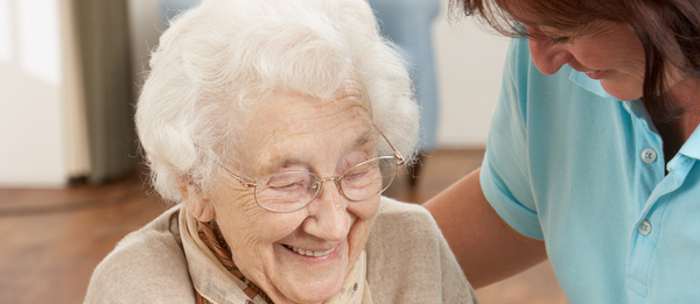 Eating disorders aren't just the domain of teenage girls and young women. In fact, many older adults suffer from this life-threatening health concern, as well. Not only that but incidences of eating disorders among seniors—particularly older women—is rising. Here’s a closer look at the phenomenon, along with how caregivers can best support aging loved ones in getting treatment for eating disorders.
Eating disorders aren't just the domain of teenage girls and young women. In fact, many older adults suffer from this life-threatening health concern, as well. Not only that but incidences of eating disorders among seniors—particularly older women—is rising. Here’s a closer look at the phenomenon, along with how caregivers can best support aging loved ones in getting treatment for eating disorders.
About Eating Disorders
According to the Mayo Clinic, “Eating disorders are serious conditions related to persistent eating behaviors that negatively impact your health, your emotions and your ability to function in important areas of life. The most common eating disorders are anorexia nervosa, bulimia nervosa and binge-eating disorder….Eating disorders often develop in the teen and young adult years, although they can develop at other ages.”
Eating Disorders and Seniors
Indeed, not only can eating disorders develop at other ages, but they are increasingly prevalent in aging adults. This doesn’t necessarily reflect new-onset of disease, however. According to eating disorder experts, older adults who suffer from eating disorders typically fall into three categories: those who have had untreated eating disorders for years, those who’ve fallen out of remission, and those for whom eating disorders are just emerging.
As Holly Grishkat, PhD., told Geriatric Medicine, “I think eating disorders are still primarily a disease of the youth, as most midlife women with eating disorders developed the problem prior to the age of 18. Many of those women are just now reaching out for treatment. So while it may look like they are emerging later in life, most eating-disordered women have been suffering since adolescence….After 30 years, the eating disorder has become almost a personality characteristic for these women, as many of them define themselves by the eating disorder.”
The Vital Role of Caregivers
Caregivers are positioned to play an important role in helping seniors recover from eating disorders—starting with recognizing the symptoms. Unfortunately, this can be easier said than done because many seniors experience unintentional weight loss due to everything from financial problems to dental issues which impact a senior’s ability to consume food.
However, there are some signs and symptoms of later-life disordered eating, according to Grishkat, including the following: significant weight fluctuations over a short period of time; using the restroom after eating; diuretics, laxatives, and diet pillboxes; the desire to eat alone as opposed to with family and friends; missing food; sensitivity to cold; dental damage, heart or gastrointestinal problems, or excessive hair loss.
Still, cautions Vivian Hanson Meehan, president and founder of the National Association of Anorexia Nervosa and Associated Disorders (ANAD), “Not all patients have all of the symptoms.”
A Treatable Condition
The good news? Eating disorders are treatable, and older adults may even have the inside edge when it comes to recovering their health and wellness. Why? Continues Meehan, “They dedicate themselves to the treatment and have many motivators that the younger women don't have—i.e., children, a family, aging, etc. As a result, these women tend to do well in treatment.”
However, this presumes they’re aware of treatment options—which is another opportunity for caregivers to contribute. If you suspect that your aging loved one may be suffering from an eating disorder, opening the lines of communication while raising awareness about treatment options is the first step. Additionally, talk to the care recipient's doctor, who can also offer invaluable partnership in getting help. Says Grishkat, “Women should know that there is a treatment out there for them—women of any age.”

Adds Meehan, “If older women seek treatment and join support groups through organizations like ANAD, they can recover and go on to lead healthy and productive lives.”
mmlearn.org offers a large library of free videos for caregivers of older adults, covering topics pertaining to senior care. Whether you are a healthcare professional or a family caregiver, if you are caring for an older adult we know that you will find mmlearn.org an essential learning and guidance tool for all of your caregiver training needs. For more useful caregiver training content, access our database of free online caregiver videos today.
